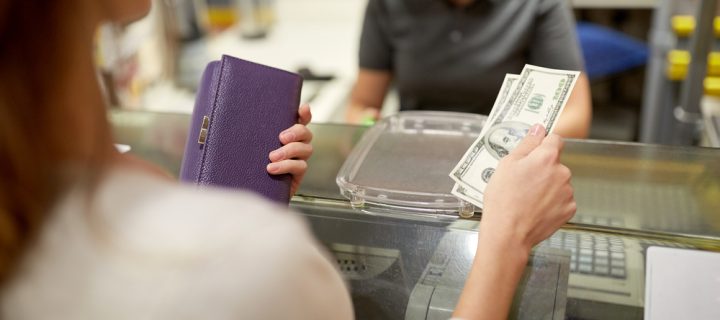The coronavirus can live on surfaces for days at a time. Yes, it is possible to get it from handling cash.
Coronavirus cases are coming down in Canada, which is great news for those north of the Canada-US border. The virus has not yet been snuffed out in every province. Things are looking much better than they did a few months ago, however. The same can not be said for some parts of the US. Unfortunately, COVID-19 is still present and strong throughout some areas of the country, with little to no end in sight at the moment. We all know of common ways you can get the virus. You can get it by inhaling infected droplets, and touching contaminated surfaces like handrails and door knobs. It is not so strange then, if you find yourself asking, just how clean is money?
Related: Mask, Visor, or Both?
We’re not talking about “dirty money” of course. Some money is likely “dirtier” than we can ever imagine. What we’re talking about here is dollar bills and coins that have been infected with COVID-19. If someone who has the virus handles money, such as a cashier at a store, and then they pass that money to you, are you likely to contract the virus from touching the potentially contaminated cash?
According to an earlier report on CBCS News, the answer to that is, yes. The novel coronavirus is can be transmitted through “fomites”. These are objects that are likely to carry infection like utensils and clothing. Paper money, and possibly coins, fall in this category. Dr. Sanjay Maggirwar, who is chair of the George Washington University School of Medicine’s department of microbiology, immunology and tropical medicine told CBS how bad it is. Coronaviruses like that which causes COVID-19 can stay on surfaces in a fully active state for a minimum of ten days, he said.
Many stores and food outlets in Canada are asking customers to pay online before picking up their order. Customers are also encouraged to pay using a bank card and with an electronic debit machine using the “tap” function whenever possible. The trouble is, this is obviously not possible for all customers.
Related: What Countries Are Using Contact Tracing and How Does it Work?
Some people do not have credit cards, which are required for many online purchases, and others do not have a bank account, either. In fact, statistics show that about 3% of Canadians have no official relationship with a bank, and as many as 6.5% of Americans, amounting to over 14 million people in the US. It is for these reasons that retail outlets and restaurants can not be mandated to only receive non-cash payments. Too many people would be left out.
Experts are recommending that those who regularly handle cash such as waiters, waitresses, bartenders, and cashiers, wear single-use latex gloves, and that they wash their hands frequently. If your workplace is not supplying these at the moment, inquire if they can. When stuck, consider ordering some and bringing your own to use.
For tips and instructions on how to remove your latex gloves without contaminating yourself, click here. Remember to throw your gloves in a garbage with a lid once you are done with them, and to wash your hands thoroughly.
photo credits: Syda Productions/Shutterstock.com











